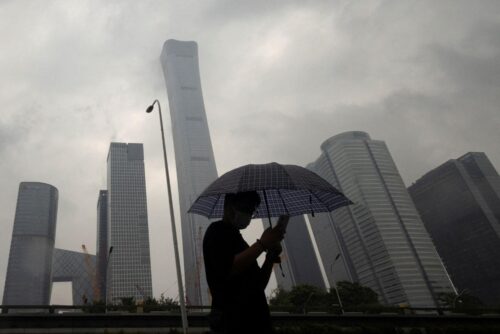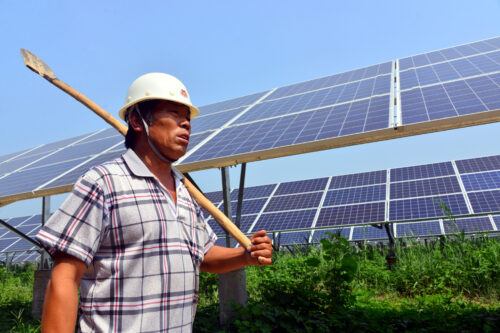China in South Asia: Bombs in Pakistan and debt bombs in Sri Lanka
A bomb blast kills three Chinese nationals in Karachi, including the head of the Confucius Institute, while Sri Lanka is in talks with China to restructure its massive debt.

China’s embassy in Pakistan confirmed that a bomb blast on a van killed three Chinese teachers employed at the Confucius Institute of the University of Karachi on Tuesday, the first direct attack on Chinese nationals in Pakistan since last year.
- Pakistan’s government condemned the terrorist attack while reaffirming that the two nations were “iron-brothers.”
- The Baloch Liberation Army (BLA) separatist group claimed responsibility for the blast and noted that it was carried out by a female suicide bomber, Reuters reported.
The bombing follows a string of attacks targeting Chinese employees working in Pakistan that have become more frequent in recent years, particularly in the resource-rich Balochistan Province, where China has invested billions in infrastructure projects under the China-Pakistan Economic Corridor project (CPEC).
- The BLA, which is labeled as a terrorist organization by the Pakistani government, usually attacks gas projects, security forces, and infrastructure — which also leads it to target Chinese projects.
- Armed attackers attempted to storm the Chinese consulate in Karachi back in November 2018, leaving four people dead.
- In 2021, similar attacks with Chinese casualties also occurred in July in northwestern Pakistan, and August in Quetta in southwestern Pakistan. Before that, in April, there was a car bombing at a hotel in Quetta where the Chinese ambassador to Pakistan was due to stay.
Pakistan is worried that the increase in the severity and number of attacks by Baloch separatists will undermine its relationship with China, a long-term ally and a much-needed source of investment pouring into the region.
- “The terrorist attack in Karachi is a direct attack on Pakistan-China friendship and an attempt to sabotage CPEC and Pakistan’s economic development. The entire nation is united in our resolve to defeat any anti-Pakistan forces,” Shah Mahmood Qureshi, former foreign minister of Pakistan, wrote on Twitter.
China in talks to help out with Sri Lanka’s snowballing debt
Meanwhile, Sri Lanka has started discussions with China about refinancing its debt, as Colombo teeters on the brink of its first debt default while struggling with its worst economic crisis since its independence in 1948.
- Sri Lanka, an island country of 22 million people, has a whopping $51 billion in external debt. The nation has seen bouts of civil unrest over shortages of fuel, food, and medicines from the economic fallout.
The move signals another major source of restructuring for the debt-ridden Asian country, after Sri Lanka’s finance minister, Ali Sabry, visited with the International Monetary Fund (IMF), the World Bank, India, and others to obtain financing help.
- Chinese loans to Sri Lanka total around $3.38 billion, not including loans to state-owned businesses. Japan, the World Bank and the Asia Development Bank are other large lenders.
- Sri Lanka suspended its repayment of foreign loans earlier this month, pending negotiations of a loan-restructuring program with the IMF. The World Bank also announced preparations for an emergency aid package to the nation.
- President Gotabaya Rajapaksa earlier asked Beijing to help restructure debt repayments when he met Chinese Foreign Minister Wáng Yì 王毅 in January.
Beijing adopts a cautious approach to its overseas finances
China has faced growing criticism over its overseas lending practices in Sri Lanka, Pakistan, and the Global South in general, though some have argued that the “debt diplomacy” narrative is a straw man to the complicated financial structuring in foreign debt.
- China has become the world’s largest government creditor over the past decade, lending more to developing countries than the IMF or the World Bank on some occasions.
- Pakistan suffered economic pains long before any BRI investments. However, the IMF warned that CPEC was contributing to a widening deficit, as the country imported billions of dollars to develop its many projects.
- In Sri Lanka, China’s $3.38 billion in loans make it the joint-largest bilateral creditor, but China only holds 9.8% of its total debt, with Japan’s share only 0.1% smaller. By contrast, nearly half of the South Asian country’s total debt is commercial.
- “Western developed countries, especially those who colonized Sri Lanka in history, should also come and help,” Chinese Ambassador to Sri Lanka Qī Zhènhóng 戚振宏 was quoted as saying.
Beijing appears to be proceeding with caution in South Asia, given political and economic instabilities in the region and China’s reputation on the global stage at stake. “It is necessary to implement risk prevention and control systems,” Chinese leader Xí Jìnpíng 习近平 said at a top Belt and Road (BRI) symposium late last year. He also emphasized “small but beautiful” projects and to “avoid dangerous and chaotic places.”




